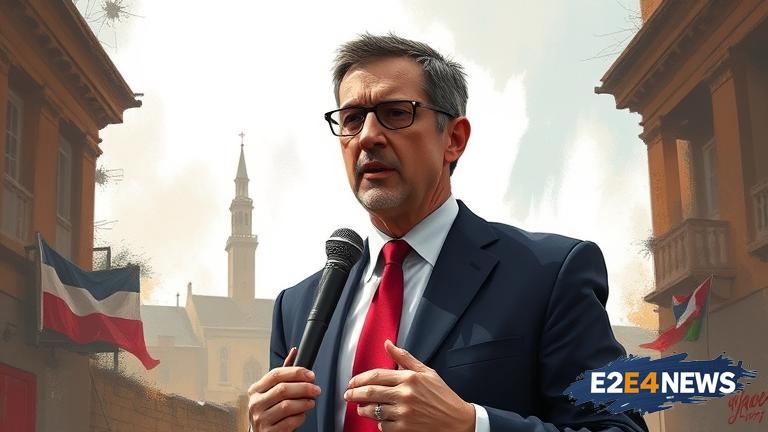The Labour Party leader, Keir Starmer, has recently unveiled a peace plan for the Gaza conflict, which has been a longstanding issue in the Middle East. The plan, which aims to establish a two-state solution, has been met with criticism from various groups, including Palestinian activists and Israeli officials. Some have called the plan ‘flawed’ and ‘unrealistic’, citing concerns over the lack of concrete details and the failure to address key issues such as settlements and borders. Despite this, Starmer remains committed to finding a peaceful resolution to the conflict, and has emphasized the need for a negotiated settlement between Israel and Palestine. The Gaza conflict has been ongoing for decades, with periods of relative calm punctuated by outbreaks of violence. The conflict has resulted in significant human suffering, with thousands of civilians killed or injured, and many more displaced. The international community has been calling for a peaceful resolution to the conflict, with the United Nations and other organizations working to facilitate negotiations between the parties. However, progress has been slow, and the conflict remains a major source of instability in the region. Starmer’s peace plan has been seen as a significant development in the ongoing efforts to resolve the conflict, and has been welcomed by some as a positive step towards finding a lasting solution. However, others have expressed skepticism, citing concerns over the plan’s viability and the lack of engagement from key stakeholders. The plan has also been criticized for failing to address the root causes of the conflict, including the Israeli occupation and the displacement of Palestinians. Some have argued that a two-state solution is no longer feasible, given the significant changes that have taken place on the ground, including the expansion of Israeli settlements. Others have called for a more radical approach, including the establishment of a single, binational state. The Labour Party has a long history of engagement with the Middle East peace process, and Starmer’s plan is seen as a continuation of this effort. However, the party’s stance on the issue has been subject to criticism, with some accusing it of being too soft on Israel. The plan has also been seen as an attempt to appeal to Jewish voters, who have been critical of the party’s handling of antisemitism allegations. Despite the controversy surrounding the plan, Starmer remains committed to finding a peaceful resolution to the conflict, and has emphasized the need for a negotiated settlement between Israel and Palestine. The plan has been seen as a significant development in the ongoing efforts to resolve the conflict, and has been welcomed by some as a positive step towards finding a lasting solution. However, others have expressed skepticism, citing concerns over the plan’s viability and the lack of engagement from key stakeholders. The international community will be watching the situation closely, as the search for a peaceful resolution to the Gaza conflict continues. The conflict has significant implications for regional stability, and a lasting solution will require the engagement of all parties, including Israel, Palestine, and the international community. The UK has a significant role to play in the peace process, and Starmer’s plan has been seen as an attempt to reassert the country’s influence in the region. However, the plan’s success will depend on the ability of the parties to negotiate a lasting settlement, and the international community’s ability to support and facilitate this process. The Gaza conflict is a complex and deeply entrenched issue, and a peaceful resolution will require significant effort and commitment from all parties. The international community must continue to work towards a lasting solution, and Starmer’s plan is seen as a positive step in this direction. However, the plan’s viability and the lack of engagement from key stakeholders remain significant concerns, and the search for a peaceful resolution to the conflict will continue to be a major challenge in the months and years ahead.
